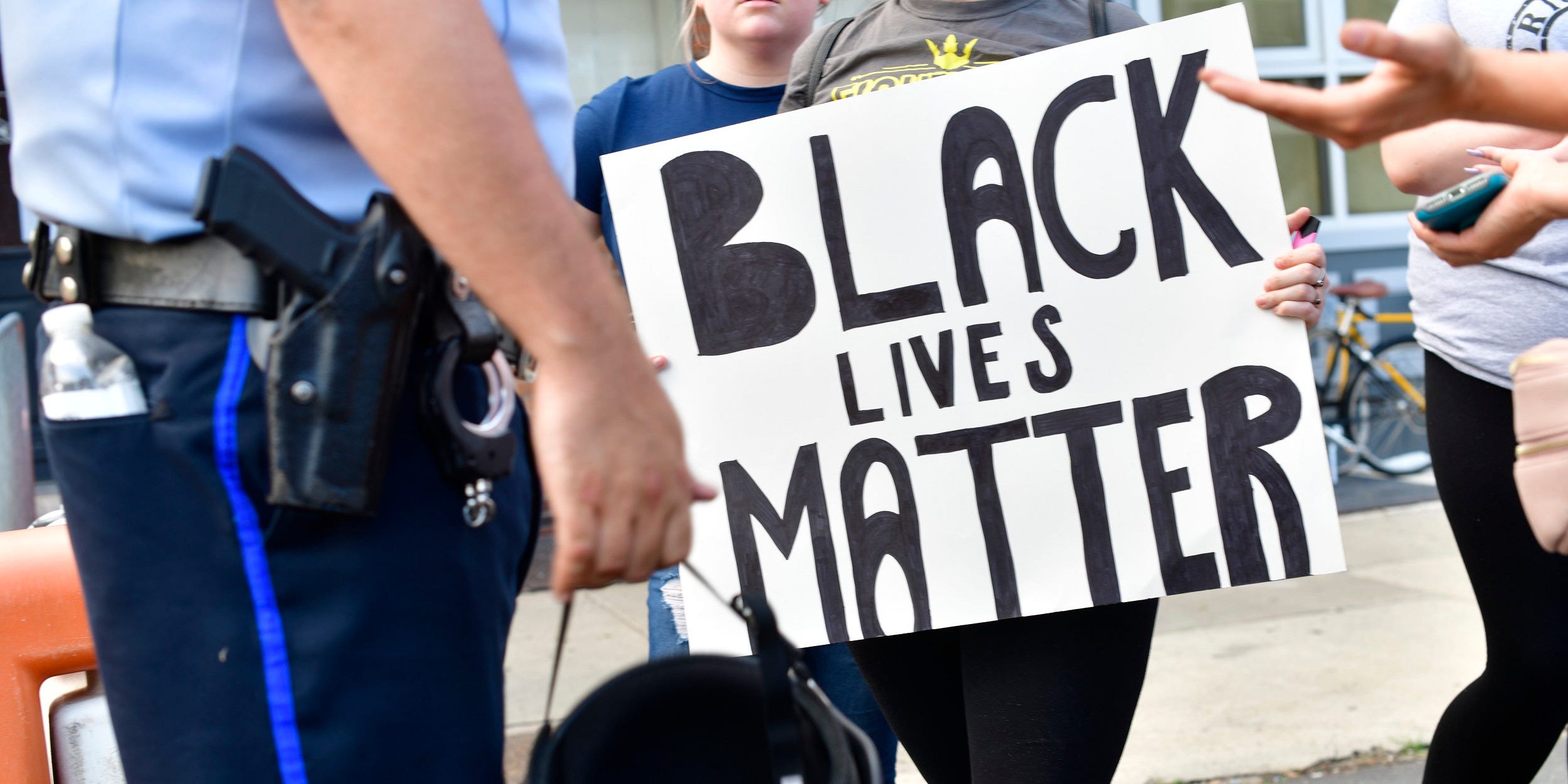- President Donald Trump falsely told Fox News that he got the phrase “when the looting starts, the shooting starts” from former Philadelphia Mayor Frank Rizzo.
- The quote actually comes from a former Miami police chief, Walter Headley, who said it during civil-rights protests. “We don’t mind being accused of police brutality,” Headley said at the time.
- While the quote does not come from Rizzo, the former mayor, like Trump, was known for boasting of his willingness to use force.
- Visit Business Insider’s homepage for more stories.
President Donald Trump definitely picked it up somewhere: the saying, tweeted out earlier this month, that “when the looting starts, the shooting starts.” But in an interview Thursday, the US president falsely attributed that quote to a “very tough mayor,” Frank Rizzo of 1970s Philadelphia, to whom he has often been compared.
Trump also contended that he was not making a threat when he posted the tweet but rather was describing an unfortunate progression.
As Fox News’ Harris Faulkner pointed out, however, the quote comes from a former Miami police chief, Walter Headley, who uttered it back in 1967 during civil-rights protests. And the intent, according to Headley, was obvious, with his saying, “We don’t mind being accused of police brutality.”
“He had a long history of bigotry against the Black community,” Clarence Lusane, a political-science professor at Howard University, told NPR.
The phrase was then picked up by George Wallace, the pro-segregation governor of Alabama, during his 1968 campaign for the presidency.
It was not used by Rizzo, a brash "law and order" politician who The Washington Post said "used the N-word and anti-gay slurs casually." But, indeed, the former Philadelphia mayor was of the same era - and the same mindset - as those who did.
He also deployed tactics, such as inflaming bigotry and promoting the idea that police work was hampered by liberal reformers, that some politicians still employ today.
As deputy police commissioner in 1964, Rizzo reportedly commanded his officers to stand down in the face of property destruction during the civil unrest that rocked the decade. "Let them break windows," he said.
"Such statements advanced the dominant critique that police officers remained virtually powerless to combat violence and looting," Dr. Nicole Maurantonio, a professor at the University of Richmond, noted in a 2012 analysis.
The police have been accused of doing the same today: In Chicago, for example, officers were recently accused of relaxing in a local Democratic congressman's office, making coffee and popcorn, while looting took place just blocks away.
Rizzo would go on to become mayor in 1968, promising to unleash an ostensibly restrained police department on the majority-Black city of Philadelphia. His final run for office saw him campaign on the slogan "Vote White"; that term, the US Department of Justice accused Rizzo and other officials over overseeing police abuse that "shocks the conscience," The New York Times reported.
"It's not just that he was a racist; it's that he was representative of the kind of police brutality that the murder of George Floyd has galvanized this response to," Paul Wolff Mitchell, a history lecturer at the University of Pennsylvania, told The Daily Pennsylvanian.
On June 3, the city of Philadelphia tore down a statue of Rizzo, a move that was even supported by the man who sculpted it, according to the student newspaper.
"It had to come down," Zenos Frudakis said, citing the pain it caused Black Philadelphians. "I don't want to hurt people."
Have a news tip? Email this reporter: [email protected]
